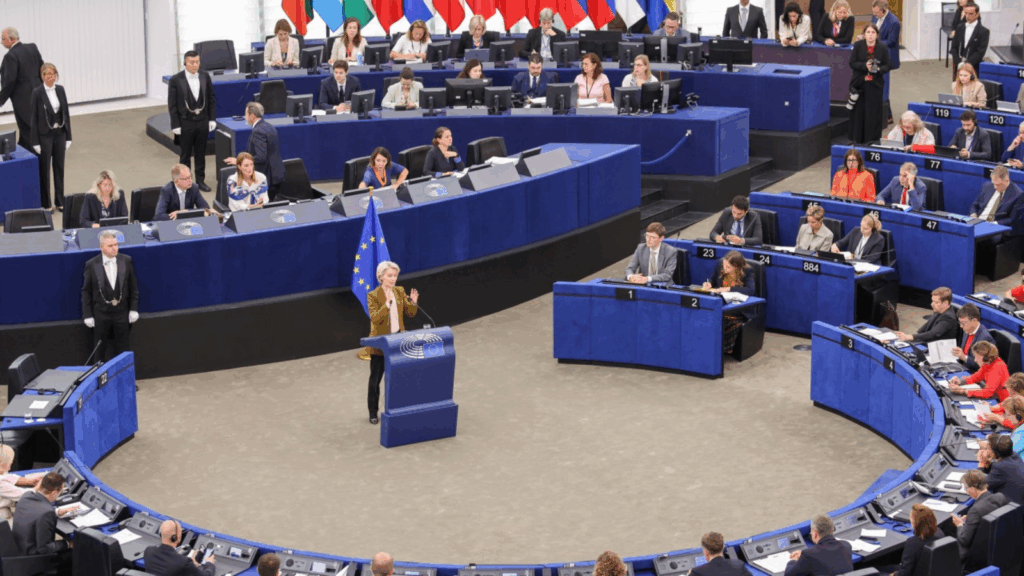The European Commission launched three new calls for proposals under the Horizon Europe programme.
First call for proposal:
Societal perceptions and benefits of rural life and jobs: will COVID 19 generate a long-lasting shift? (TOPIC ID: HORIZON-CL6-2024-COMMUNITIES-01-2)
Rural areas are often described by the challenges they face: depopulation, demographic change, low income levels, limited access to services, low connectivity, discontent caused by the feeling of being overlooked and limited resilience. However, rural areas can be places of opportunities. For instance, they are key for green-energy production and for ecosystem services; they have the potential of developing the bio and circular economy; they are also an integral part of the ecological and digital transitions; they can also be places rich in terms of cultural heritage and have the potential to develop cultural initiatives. Overall, there are increasing demands from the society that are putting pressure on rural areas and the Covid-19 crisis showed how important it is to keep essential services, e.g. the agri-food production that is an important part of the rural economies, active.
Project results are expected to contribute to all of following expected outcomes:
- Improved understanding by policy makers at different levels (European, national, regional and local) of the behavioral drivers of people’s lifestyle choices and rural and urban dwellers’ perceptions of rural life in the aftermath of COVID 19;
- Improve understanding of policy makers at different levels (European, national, regional and local) of the behavioral and structural drivers of people’s lifestyle choices and people’s perceptions of rural life in the aftermath of COVID 19 and of the long-term trends and opportunities for rural areas;
- Improved policy-response to rural areas challenges and needs in the light of the COVID 19 impact;
- Improved narrative of rural and farming lives.
The deadline is the 22nd of February 2024. For more information, please visit the Commission’s website.
Second call proposals:
Enhancing social inclusion in rural areas: focus on people in a vulnerable situation and social economy (TOPIC ID: HORIZON-CL6-2023-COMMUNITIES-01-1)
Projects funded under this topic will contribute to build more inclusive, social resilient and prosperous European rural areas by improving the understanding of social inclusion and social economy challenges in rural areas, by taking stock of existing policies responses, and solutions for the provision of adequate services to the population in a vulnerable situation and for enhancing social economy and entrepreneurship. Projects will also address these challenges by piloting innovative solutions that foster social economy and improve social inclusion of people in a situation of vulnerability. The successful proposals will contribute to fostering a sustainable, balanced, equitable and inclusive development of rural areas, supporting the implementation of the following Commission’s priorities: the European Green Deal, in particular its fair and just transition component; an economy that works for people as well as to the European pillar of social rights, the EU social economy action plan; and a new push for European democracy, notably to the long-term vision for the EU’s rural areas objectives (in particular contributing to rural areas’ resilience), and the strategy for the rights of persons with disabilities 2021-2030. Project results are expected to contribute to all of following expected outcomes:
- Improved understanding of policy makers at different levels (European, national, regional and local) and citizens regarding the challenges to address disparities and marginalisation in rural areas, the various needs of people in a vulnerable situation, and how to enhance social inclusion, social resilience and well-being;
- Improved policies and governance frameworks for social inclusion and social economy in rural areas;
- Increased economic opportunities and development of social entrepreneurship in rural areas;
- Improved social integration and access to adequate services for people in a vulnerable situation in rural areas and to rural dwellers more in general.
The deadline is the 12th of April 2023. For more information, please visit the Commission’s website.
Third call proposals:
Radicalisation and gender (TOPIC ID: HORIZON-CL3-2024-FCT-01-04)
Terrorism resulting from radicalisation and violent extremism is a serious threat to European security. Part of the complexity of these phenomena lies in the fact that there is neither a single pathway to radicalisation nor a single terrorist profile. Support of extremists is an effect of individual clusters of psychological, personal, social, economic and political reasons. From a gender perspective, women’s radicalisation and involvement in violent extremist groups remain relatively under-researched, poorly understood and possibly characterized by misconceptions about women’s exclusion from decision-making processes, as well as their significant underrepresentation in bodies countering the phenomena. In situations of conflict and violence, women are often seen as passive, victims, subordinate and maternal, while these could be assumptions reinforcing gender stereotypes. In order to improve understandings of radicalization and gender we need to study how and why gender norms appear as an increasingly contested area of politics with strong mobilizing power. What role gender norms and equality policies play in stabilizing and destabilizing social and political order, and how ideas and norms about gender equality make people react, mobilize and engage politically, at present, in the past and in the future.
Projects’ results are expected to contribute to some or all of the following outcomes:
- Improved understanding of motivation of women and girls for supporting extremist ideologies, such as grievance and stigmatisation;
- Improved understanding of the role of masculinity in men and boys’ motivation for the support of extreme ideologies;
- Better understanding of the group dynamics at play during processes of radicalisation, including factors for factionalism and potential splinters in terrorist organisations;
- Development of strategies aimed at enhancing the use of motivation factor in detection, prevention and de-radicalisation efforts;
- European Police Authorities, Prison Authorities, social care workers, teachers and other P/CVE practitioners benefit from modern and validated tools, skills and training curricula to identify early symptoms of radicalisation;
- Identification and assessment of best practices that are transferable across Member States improving and developing modules and trainings, strengthening adaption of local community policing in diverse communities; and
- Design girls and women’s empowerment approaches through legal, financial and/or cultural means aimed at tackling the root causes of radicalisation and extremism.
The deadline is the 20th of November 2024. For more information, please visit the Commission’s website.
To learn more about current calls for proposals or Eurodiaconia’s funding events, please don’t hesitate to get in touch with our our Projects and EU Funding Officer Giorgia Signoretto at .



